
Senkichi Taniguchi
출생 : 1912-02-19, Tokyo, Japan
사망 : 2007-10-29
약력
From Wikipedia, the free encyclopedia.
Senkichi Taniguchi (February 19, 1912 – October 29, 2007) was a Japanese film director and screenwriter.
Born in Tokyo, Japan, he attended Waseda University but left before graduating due to his involvement in a left-wing theater troupe. He joined P.C.L. (a precursor to Toho) in 1933 and began working as an assistant director to Kajirō Yamaguchi alongside his longtime friend, acclaimed Japanese filmmaker, Akira Kurosawa. He made his feature film directing debut in 1947 with Snow Trail, which was written by Kurosawa. Snow Trial starred Toshirō Mifune in his film debut and actress Setsuko Wakayama. It helped establish Taniguchi's reputation for action film.
Taniguchi and Wakayama married in 1949 (he had earlier been married to the screenwriter Yōko Mizuki), but the couple divorced in 1956. Taniguchi married his second wife, actress Kaoru Yachigusa, in 1957. Yachigusa and Taniguchi remained together for over fifty years until his death in 2007.
Taniguchi was the screenwriter for the 1949 film, The Quiet Duel, which Kurosawa directed and which also starred Mifune. His most acclaimed film as a director was Escape at Dawn, a controversial anti-war work from 1950 about a Japanese soldier and a "comfort woman" that got into trouble with Occupation era censors. Taniguchi continued to direct movies throughout the 1950s and 1960s, but the quality of his work declined. His films from the time period include Man Against Man, The Gambling Samurai, Man In The Storm and The Lost World of Sinbad. His 1965 film International Secret Police: Key of Keys has been famously re-dubbed and re-released as What's Up, Tiger Lily? by Woody Allen. He was chosen as the supervising director of the official documentary of Expo '70.
Senkichi Taniguchi died of pneumonia at a hospital in Tokyo, Japan, on October 29, 2007, at the age of 95.
Description above from the Wikipedia article Senkichi Taniguchi, licensed under CC-BY-SA, full list of contributors on Wikipedia

Self - Childhood Friend
A profile and history of film director Akira Kurosawa.

Director
Akira Ifukube has arranged music from his fantastic films into a three-movement symphony, presented here with scenes from the films the music was originally written for. The second half features Makoto Inoue's synthesizer arrangements of Ifukube's music. In this portion, all the music is by Ifukube, but it shows scenes from films Ifukube did not work on. Showcases footage from various monster and science fiction films from Ishiro Honda as well as scenes from Senkichi Taniguchi's Adventure of Kigan Castle.

Director
In Hong Kong an International Secret Police (ISP) Agent is murdered while investigating ZZZ, a group bent on assassinating the Prime Minister of Buddhabal. ISP Agents Carter and Kitami are assigned to the case. When the Prime Minister arrives in Tokyo for a friendship visit, Carter and Kitami are on hand to protect him. On hand, too, are assorted ZZZ blackguards. Several attempts on the Prime Minister's life fail, until finally the ZZZ introduces a new device designed to eliminate not only the Prime Minister but the ISP Agents as well: THE KILLING BOTTLE, then, is a pocket-sized container filled with a substance that can expand to thousands of times its size and throttle its victim, then disappear leaving only the corpse.
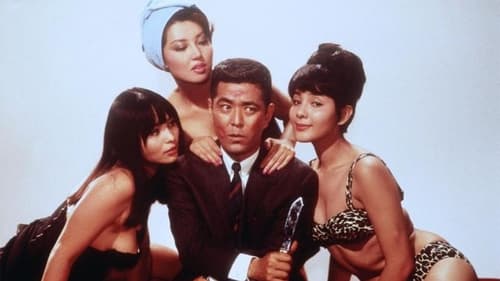
Director
In comic Woody Allen's film debut, he took the Japanese action film "International Secret Police: Key of Keys" and re-dubbed it, changing the plot to make it revolve around a secret egg salad recipe.
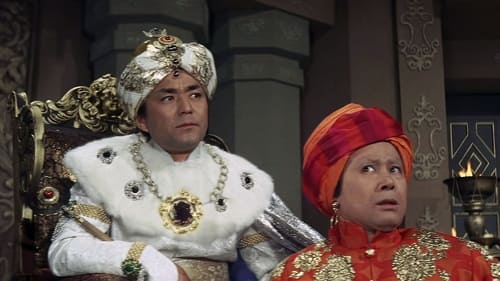
Director
Osami, a soldier-of-fortune from Japan, joins with priest Ensai in a quest for the ashes of the great Buddha. Their journey takes them to a kingdom in the Middle East, where they find intrigue and romance in the court of an evil king.

Director
Banjun organizes a group of con men to fleece the greedy and rich.
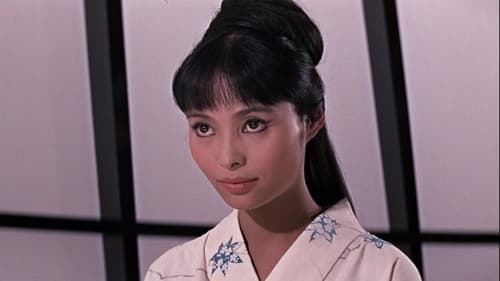
Director
Kokusai himitsu keisatsu: Kagi no kagi is the fourth instalment of five films in the "Kokusai himitsu keisatsu" series. The film is a parody of James Bond-style spy movies, and was used by Woody Allen, along with footage from the third instalment, in one of his first films, "What's Up, Tiger Lily?", in which the original dialogue is redubbed in English to make the plot about a secret egg salad recipe.
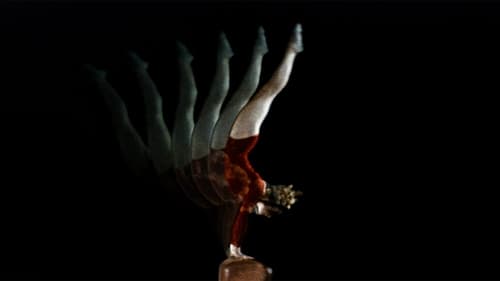
Associate Producer
This impressionistic portrait of the 1964 Tokyo Summer Olympics pays as much attention to the crowds and workers as it does to the actual competitive events. Highlights include an epic pole-vaulting match between West Germany and America, and the final marathon race through Tokyo's streets. Two athletes are highlighted: Ethiopian marathon runner Abebe Bikila, who receives his second gold medal, and runner Ahamed Isa from Chad, representing a country younger than he is.
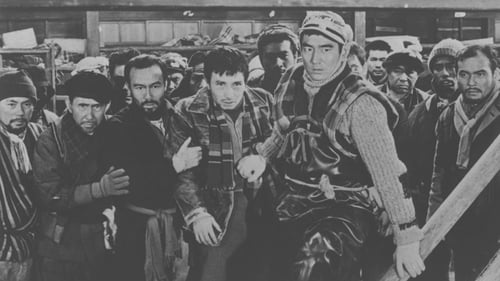
Screenplay
In a village subsisting on its herring fishery, a one-eyed criminal named Jakoman terrorizes the inhabitants. One of them, the son of the head of one of the fish companies by the name of Tetsu, decides to overthrow Jakoman and his cohorts.
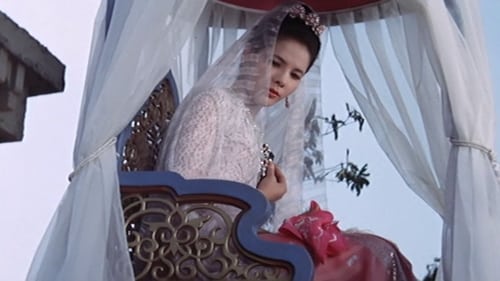
Director
An adventurous and daring sailor sets sail to the castle of an ailing king to stop an evil premier, hungry for power and wealth, from succeeding the throne and marrying the king's beautiful daughter. Along the way, with the help of some courageous rebels and a lustful wizard, he must overcome the powers of a bewitching witch, a band of ruthless pirates, and the castle's Imperial guards. He must also free those kidnapped into slavery and restore the king's reputation.

Director
The fifth film of the desperado outpost series directed by Senkichi Taniguchi

Director
Soldiers on the front lines in China during World War II are besieged by guerrilla attacks and attempt to destroy an enemy fort.

Director
Four fishermen friends are caught up in a piracy plot.

Director
Kikumori runs a cabaret on the docks, while his friend Kaji operates transport boats. When a gang of drug dealers tries to force the pair to cooperate in a smuggling scheme, conflict arises between the two friends. Falsely blamed for murder, Kikumori is blackmailed into an attempt to sabotage Kaji's boats and kill him. But the friendship between the two men proves an obstacle to the gangleader's plans.

Director
Chuji Kunisada returns to his home village to find that Jubei Matsui, the corrupt magistrate, has been responsible for virtually destroying Kunisada's family. A final tragedy leads Kunisada to join with a band of rogues living in the forest in robbing from the rich and giving to the poor, always with an eye toward avenging himself on Magistrate Matsui.
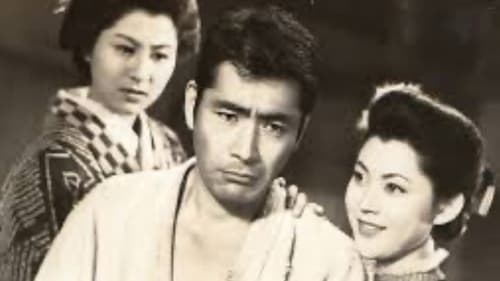
Writer
Masahiko Koseki, a judo master, gets in several fights as a result of protecting a young woman. Despite his success, Koseki is expelled from his judo school because of his propensity for street fighting. He goes to work for a gangster named Joji, but when he realizes that Joji is mixed up in the slave trade, Koseki helps the police in their attempts to foil Joji.

Director
Masahiko Koseki, a judo master, gets in several fights as a result of protecting a young woman. Despite his success, Koseki is expelled from his judo school because of his propensity for street fighting. He goes to work for a gangster named Joji, but when he realizes that Joji is mixed up in the slave trade, Koseki helps the police in their attempts to foil Joji.

Director
Period romantic drama.

Screenplay
Film directed by Senkichi Taniguchi

Director
Film directed by Senkichi Taniguchi

Writer
Lonely youth Shinji meets Hatsue, a pretty pearl diver, on the beach and the two fall in love. But Shinji has a rival for Hatsue's affections, Yasuo.

Director
Lonely youth Shinji meets Hatsue, a pretty pearl diver, on the beach and the two fall in love. But Shinji has a rival for Hatsue's affections, Yasuo.

Screenplay
Story about a poor Japanese woman living near an American army base who resorts to prostitution.

Director
Story about a poor Japanese woman living near an American army base who resorts to prostitution.

Screenplay

Director

Director

Once an average and seemingly ordinary Tokyo girl, she suddenly finds herself as a TV star owing to her discovery by a casting company, which noticed photographs that her cousin had sent. When another actress falls ill she is given the role instead. Her first film is a success propelling the young actress to popularity, her own fans, money and a house. While everything looks dandy from the outside not all is well within the family however.

Screenplay
A Japanese woman, the mistress of an American, falls in love with her servant.

Director
A Japanese woman, the mistress of an American, falls in love with her servant.

Director
Directed by Senkichi Taniguchi

Screenplay
A young man, convicted of a crime and imprisoned in the penitentiary, comes to believe that his wife is being unfaithful to him. He contrives his escape from the prison in order to seek her out and learn the truth, but the police give chase and he must flee into the mountains.

Director
A young man, convicted of a crime and imprisoned in the penitentiary, comes to believe that his wife is being unfaithful to him. He contrives his escape from the prison in order to seek her out and learn the truth, but the police give chase and he must flee into the mountains.
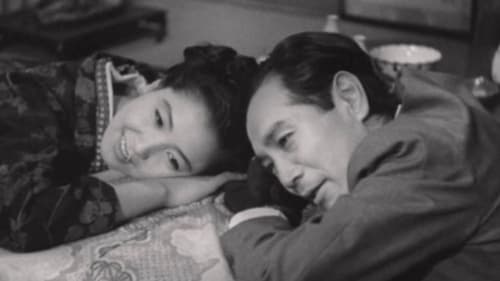
Screenplay
A joint project by Sojiro Motoki and Tomoyuki Tanaka, co-dramatizing the original story by Shu Sekikawa with Senkichi Taniguchi and Kenro Matsuura. The fur of a stray dog, the double-barreled gun tied to the backpack, the beard covered with tanned leather, and the bottom of the snow-burnt shining eyes, for the first time in thirteen years, these reached out to the bottom of society. Genji Iwaki dreamed of reuniting with his first love, Tsukie Shiina, with a huge amount of gold dust. To hand over half of the gold dust, he appeared in the memorable N city from the mountains of Teshio with the hope of seeing his late colleague's son, Ichiro Akutsu...

Director
A joint project by Sojiro Motoki and Tomoyuki Tanaka, co-dramatizing the original story by Shu Sekikawa with Senkichi Taniguchi and Kenro Matsuura. The fur of a stray dog, the double-barreled gun tied to the backpack, the beard covered with tanned leather, and the bottom of the snow-burnt shining eyes, for the first time in thirteen years, these reached out to the bottom of society. Genji Iwaki dreamed of reuniting with his first love, Tsukie Shiina, with a huge amount of gold dust. To hand over half of the gold dust, he appeared in the memorable N city from the mountains of Teshio with the hope of seeing his late colleague's son, Ichiro Akutsu...

Writer
1950 Toho film directed by Senkichi Taniguchi

Director
1950 Toho film directed by Senkichi Taniguchi
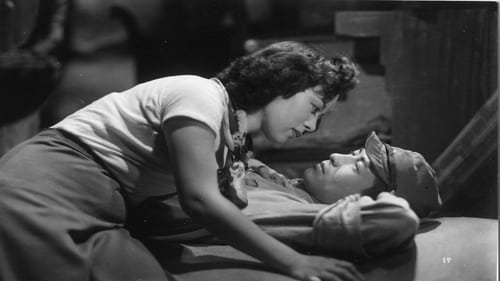
Screenplay
Mikami, a Japanese soldier, is captured by Chinese forces. Although able to escape, he is treated with contempt by his peers. After falling in love with a prostitute named Harumi, she convinces him to desert the army and live with her. Directed by Senkichi Taniguchi with a screenplay by Taniguchi and Akira Kurosawa and assistant direction by Ishiro Honda. Kurosawa's final credit as a screenwriter was removed from initial release due to various rewrites.

Director
Mikami, a Japanese soldier, is captured by Chinese forces. Although able to escape, he is treated with contempt by his peers. After falling in love with a prostitute named Harumi, she convinces him to desert the army and live with her. Directed by Senkichi Taniguchi with a screenplay by Taniguchi and Akira Kurosawa and assistant direction by Ishiro Honda. Kurosawa's final credit as a screenwriter was removed from initial release due to various rewrites.
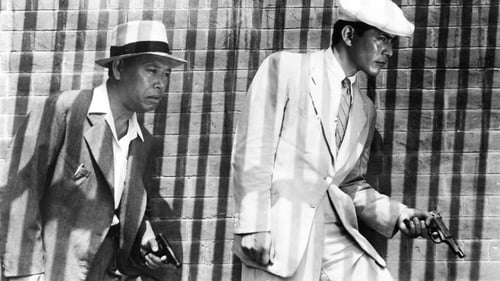
Associate Producer
무더운 여름날, 만원 버스에 오른 초보형사 무라카미(미후네 도시로)는 소매치기에게 권총을 도둑맞는다. 고참 형사 사토(시무라 다카시)의 조언에 따라 사라진 권총의 단서를 추적하는 무라카미. 버스에서 그에게 달라 붙어 있던 중년 여인은 알고 보니 일급 소매치기였다. 무라카미가 그녀를 미행하는 동안 도심 한 복판에서는 총기 강도사건이 일어난다.
거장 구로사와 감독의 초기 수작으로 일본 전후 사회의 매우 리얼한 풍경 묘사는 물론 범죄 수사과정을 하나부터 열까지 꼼꼼하게 좇아가는 치밀함을 느낄 수 있는 정통 형사물이다. 각본가 기쿠시마 류조가 경시청 취재 중 듣게 된 경관 권총 분실 사건을 소재로 만든 영화. 끈적하게 땀이 배일 것 같은 후덥지근한 여름의 분위기와 종전 후 서서히 부흥되어 가고 있는 도쿄의 실상이 매우 리얼하게 담겨 있다. ‘메그레 경감’ 시리즈로 유명한 추리소설가 조르주 시므농의 팬이기도 했던 구로사와는 긴박감 넘치는 추리영화의 틀을 빌려, 전후의 피폐한 현실과 가치관의 혼란을 탁월하게 묘사해 냈다. 모리사키 아즈마에 의해 1973년 리메이크되었으며, 아오야마 신지의 (1997) 역시 직접적인 영향을 받았다. , , 등 많은 미국영화에서 이 작품에 오마주를 바친 장면들을 발견할 수 있으며, 특히 조지 루카스의 에서 오비완 케노비가 라이트 세이버를 떨어뜨린 아나킨을 힐책하는 장면은 사토가 무라카미를 질책하는 장면을 그대로 인용한 것이다.

Writer
In a village subsisting on it herring fishery, a one-eyed criminal named Jakoman terrorizes the inhabitants. One of them, the son of the head of one of the fish companies by the name of Tetsu, decides to overthrow Jakoman and his cohorts.

Director
In a village subsisting on it herring fishery, a one-eyed criminal named Jakoman terrorizes the inhabitants. One of them, the son of the head of one of the fish companies by the name of Tetsu, decides to overthrow Jakoman and his cohorts.
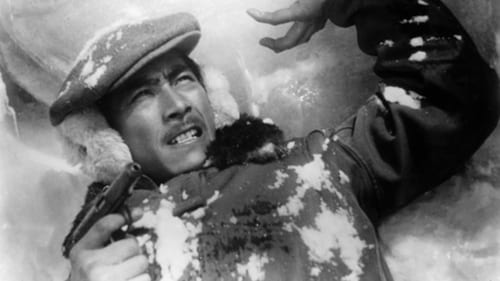
Director
Three bank robbers, Eijima, Nojiri, and Takasugi, flee the police and escape into the mountains. At an inn high in the Japanese Alps, Eijima and Nojiri encounter a young woman and her father, as well as Honda, a mountaineer. The inn folk do not realize their guests are wanted criminals and the visitors are treated with great kindness. Honda volunteers to lead them over the mountains, but Eijima's paranoia endangers all of them as they make the perilous trip.

Assistant Director

Producer
[미몽 1936]
[군용열차 1938]
[어화 1939]
위 세가지 작품 합본

Assistant Director
Enoken plays a cloistered rich kid whose father hires a disreputable tutor to teach him how to really be a millionaire: by drunken debauchery, women, and song.

Director
The film is about a protest provoked when the university decided to restrict access to sports facilities to athletes, cutting out all other students. This is, strictly speaking, not a Prokino film. It was produced by the Waseda University Film Circle, which was organized by Kawazoe Shiro. Feature film directors Yamamoto Satsuo and Taniguchi Senkichi were apparently students at Waseda at the time and participated in the production.













